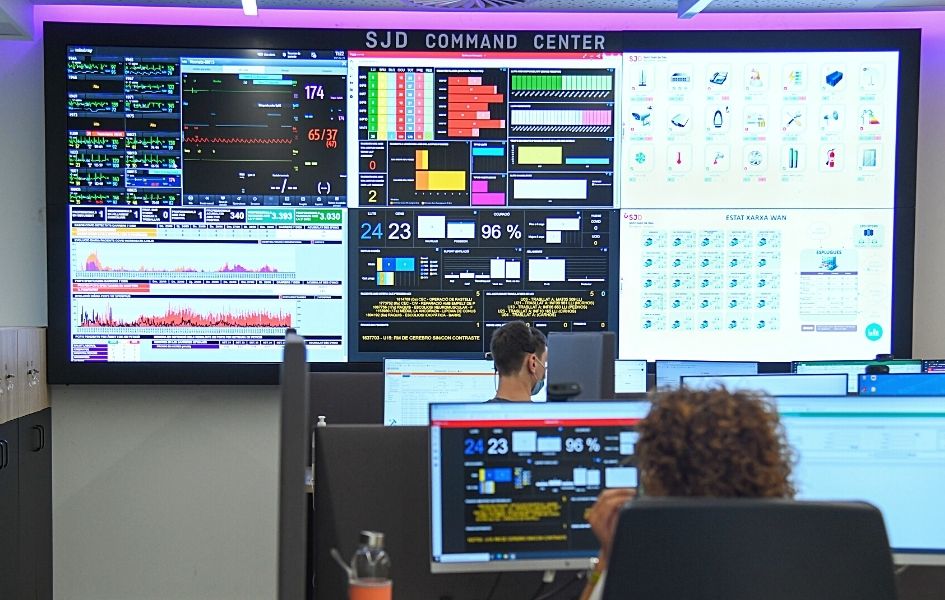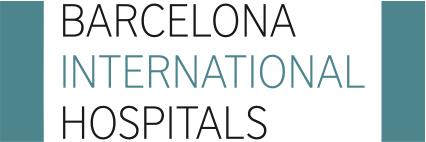Big data y salud
Barcelona has long been a city open to digital transformation. Transformation, whose main tool is Big Data, is understood as the generation and massive analysis of data in order to predict and/or prevent behaviors and trends, among others.
Big data can be applied to any sector, being the health sector the most outstanding for its countless benefits. In the healthcare field, the information to be studied is extracted from:
- Medical center records: number of patients attended, hours of operation, resources used, pathologies treated, etc.
- Electronic medical records
- Diagnostic imaging tests
- Telemedicine devices
- Electronic devices and gadgets such as smart watches (wearable technology)
- Biological samples preserved in banks, such as cells, tissues or organs.
- Medical research
- Epidemiological, nutritional and genetic references.
The benefits of Big Data in healthcare
As we have already mentioned, the generation and analysis of massive data is a valuable source of information for healthcare that allows:
- Analyze the different data to make forecasts on the influx of patients and the evolution of care in medical centers. And with this, to be able to adjust the Human Resources policy, the management of staff shifts or the purchase of materials.
- To observe possible changes in eating habits, physical activity and addictions, among others. In order to detect future diseases at an early stage.
- To develop, on the part of the administration, preventive policies. And as far as medical centers are concerned, to adapt medical care and clinical practice to the real needs of patients.
- Prevent the spread of infectious diseases
- To better understand the mechanisms and effects of drugs already developed and also to create new ones.
- Reducing healthcare costs

4P Medicine
Thanks to Big Data and Artificial Intelligence, a new medicine is taking shape based on 4 pillars, which are:
Prevention.
The increase in life expectancy leads the medical community to consider a paradigm shift. Medicine is no longer focused only on cure, but on anticipation to avoid any risk.
Aiming for a better quality of life involves regular check-ups and healthier lifestyles. For this reason, wearable technology is essential, electronic devices and gadgets that collect data on patients’ vital functions, thus making it possible to anticipate any alteration.
Prediction.
According to the dictionary, to predict means to announce by revelation, founded knowledge, intuition or conjecture what is to happen. Medicine can only predict on the basis of founded knowledge. That is why diagnostic medicine is so important, since by observing the inside of our body we can find clues to any medical condition.
Likewise, diagnostic medicine together with the advances of molecular medicine, allow, nowadays, to estimate if the patient may develop some kind of disease in the future, taking preventive measures even before the symptoms appear.
Participation.
The patient is no longer a passive being but an active individual participating in the care of his own health.
Medicine now understands the importance of empowering the patient and placing him/her at the center of making decisions related to his/her health. That’s why, now, through the use of online health-related healthcare applications, patients can now manage, retrieve, manage and share their health data.
Personalization.
In order to individualize both medical care and treatment according to the needs and lifestyle of each patient, it is essential to have a detailed electronic patient record (EHR) so that medical staff can make concrete decisions tailored to each individual case.
Barcelona International Hospitals (BIH)
with 4P medicine
Prevention, prediction, participation and personalization are the axes around which the seven hospitals that make up the BIH revolve. For all of them, 4P Medicine guides their present and future strategies. That is why:
- They are committed to sharing knowledge, both among the seven hospitals that make up the group and with other national and international hospitals. One example of this is the Diagnostic Imaging Service of the Hospital Universitari Dexeus, which, since the beginning of 2019, has been using Artificial Intelligence in the early diagnosis of lung cancer, the first hospital in Spain, and provides the resulting data to more than 300 hospitals around the world.
- They create digital platforms through which to disseminate information and also to collect it. Examples of this are the DORYOS digital platform created by the QuirónSalud Group to disseminate knowledge from doctors to doctors. Or the Comprehensive Information Service on Disability of Neurological Origin (SiiDON), an initiative of the Institut Guttmann, which offers contrasted and useful information content to all those interested in the world of disability of neurological origin.
- They modernize their facilities and medical equipment and incorporate the latest technology. See the new Advanced Dialysis Unit of the Fundació Puigvert, in which thanks to Big Data and AI, it will be possible to create predictive models on the evolution of patients.
- They develop and participate in projects based on Big Data with the aim of advancing organizational and healthcare change to achieve a more proactive, collaborative and personalized medicine. Projects such as “Hospital Líquido 4.0 (HL4.0)”, led by Hospital Sant Joan de Déu-Barcelona Children’s Hospital, thanks to which other initiatives such as the state-of-the-art CORTEX control center were promoted. This project is focused on optimizing patient flow and monitoring or anticipating adverse events for patients with congenital heart disease using artificial intelligence algorithms in the CORTEX-eCARE center. They also have advanced diagnostic support centers such as the Pediatric Computational Imaging Center or the 3D Planning Unit.
- Strengthen research on Artificial Intelligence in order to empower the patient through digital solutions. An example of this is the AICCELERATE project, formed by 16 European organizations from 8 countries, and whose objective is to demonstrate the scalability of AI solutions provided by Smart Hospital Care Pathway Engine for different types of healthcare uses.
- They organize events focused on big data, such as the Hackathon (meeting of programmers focused on collaborative software development) carried out by barnaclinic+. Grupo Hospital Clínic with the purpose of developing an algorithm capable of predicting the survival of melanoma patients.
For more information about Barcelona International Hospitals and our way of understanding medicine and health, contact us!
At Barcelona International Hospitals you will find the most prestigious hospitals in the city of Barcelona.
Send us an email with your questions and queries by clicking on the button.

